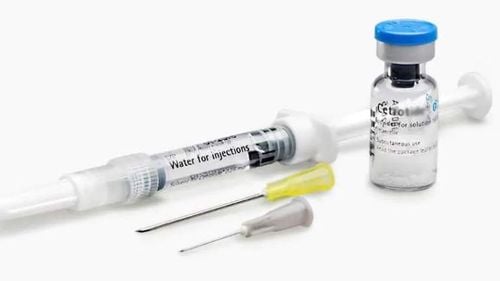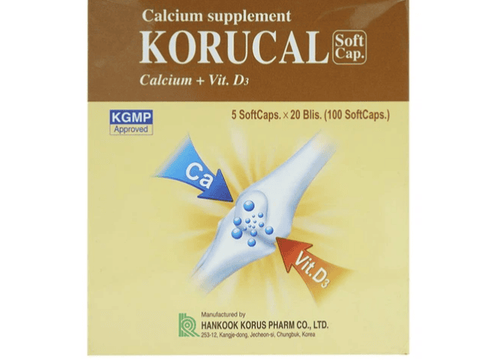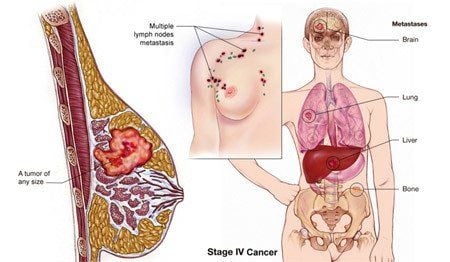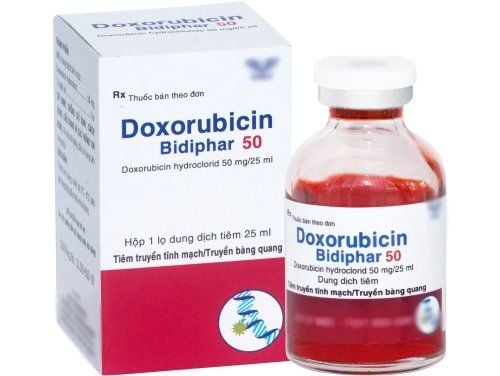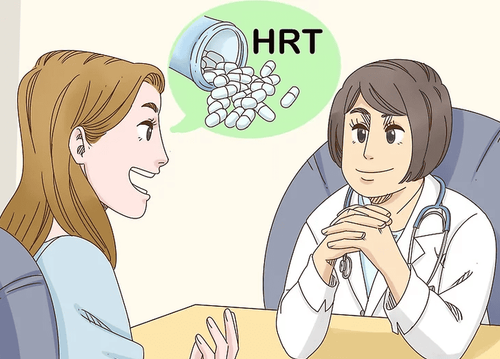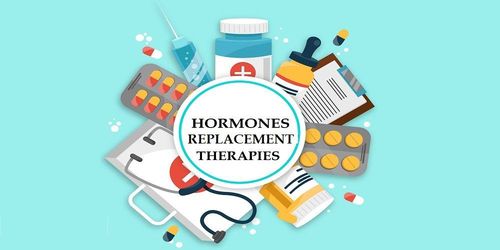This is an automatically translated article.
The article was professionally consulted with Specialist Doctor II Huynh Thi Hien - Obstetrician and Gynecologist - Department of Obstetrics and Gynecology - Vinmec Nha Trang International General Hospital.People who use hormone replacement therapy (HRT) have a higher risk of being diagnosed with breast cancer. In the past, many postmenopausal women have taken HRT for many years to relieve menopausal symptoms and reduce bone loss. Since 2002, when research has linked HRT and cancer risk, the number of women taking HRT has dropped dramatically.
1. Evidence on hormone replacement therapy and breast cancer risk
Hormone replacement therapy (HRT) is used to relieve menopausal symptoms, especially hot flashes. A woman on hormone therapy usually takes both estrogen and progestin. Women who have had a hysterectomy can take estrogen alone. Estrogen reduces hot flashes and other menopausal symptoms. However, taking estrogen alone may increase the risk of developing uterine cancer. Women who have had a hysterectomy can take estrogen alone because there is no increased risk of uterine cancer.Many studies have looked at the link between hormone replacement therapy and breast cancer. The best evidence about the benefits and risks of hormone replacement therapy comes from the Women's Health Initiative, a large study that involved more than 27,000 healthy postmenopausal women. . Study results published in July 2002 showed that the risks of HRT in combination with estrogen plus progestin outweigh the benefits. These risks include an increase in breast cancer, cardiovascular disease, stroke, and blood clots.
Combined HRT not only increases the risk of developing breast cancer, but also increases the chance that the cancer is detected at a more advanced stage. This is due to the effect of this therapy in reducing the effectiveness of mammograms by creating thicker breast tissue.
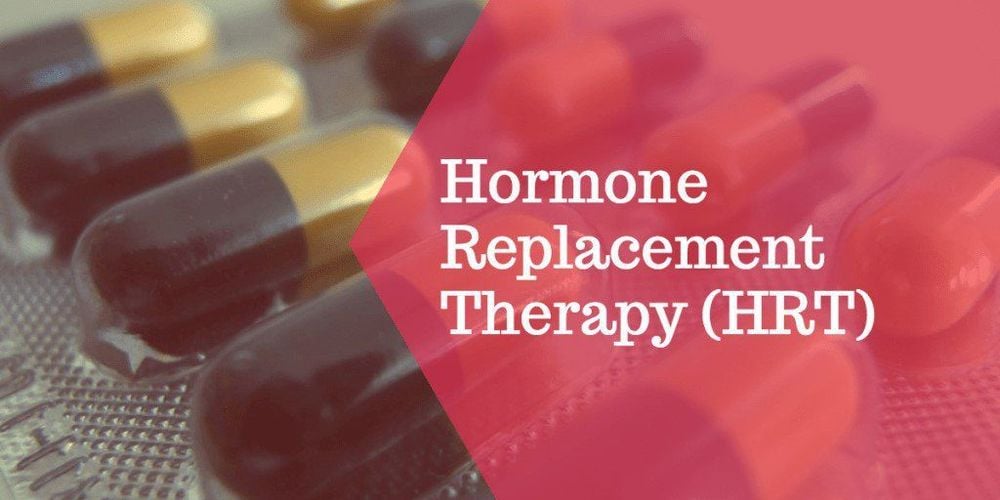
If you are considering HRT to relieve menopausal symptoms, talk with your doctor to discuss the risks and benefits.
There are two main types of HRT:
Combination HRT containing the hormones estrogen and progesterone estrogen-only HRT Each type of HRT appears to have a different impact on breast cancer risk.
Combined HRT increases the risk of breast cancer by about 75%, even with short-term use. Combined HRT also increases the chance that the cancer can be found at a more advanced stage, as well as increases the risk that women diagnosed with breast cancer will die from the disease. The risk of breast cancer increased most sharply during the first 2 to 3 years of combined HRT use. High-dose combination HRT increases the risk of breast cancer more than low-dose combination HRT. The risk of breast cancer drops on average about 2 years after you stop taking combination HRT.
Estrogen-only HRT also increases breast cancer risk, but only when used for more than 10 years. Estrogen-only HRT may also increase the risk of ovarian cancer.
The risk of breast cancer from using HRT in "biological" and "natural" hormones is the same as in synthetic hormones. "Biological" means that the hormones in the product are identical to the hormones your body produces. Bioidentical hormones are said to be "natural" due to their plant origin. Synthetic hormones are made in a lab, and the two are also chemically identical to the hormones in your body. It is important to know that many herbal and biologic HRT products fall outside the jurisdiction of the US Food and Drug Administration and therefore are not subject to drug testing and regulations.
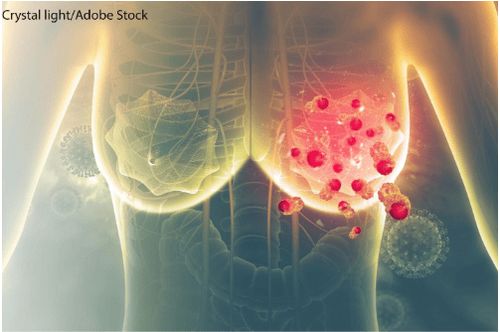
2. Do the benefits of HRT outweigh the risks?
Hormone replacement therapy is an effective treatment for reducing hot flashes during menopause. But growing evidence for a link between hormone therapy and breast cancer has discouraged many doctors from choosing or recommending this treatment.The type of hormone therapy (estrogen only or a combination of estrogen and progestin), as well as the individual characteristics of the woman, risk factors, and severity of menopausal symptoms, should be considered when considering risks and benefits of HRT. Doctors and women should make decisions about hormone use after weighing all the potential risks (including heart disease, breast cancer, stroke and blood clots) and benefits (reducing chronic symptoms). terrible).
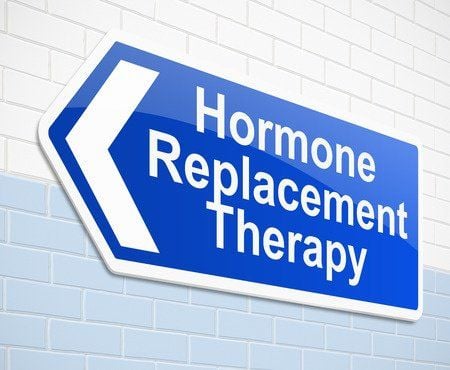
In the past, doctors may have prescribed HRT after breast cancer treatment because there were no clear studies that showed it was harmful. However, in early 2004, a study (the HABITS study) was stopped early after it was found that HRT-treated cancer survivors were more likely to develop new or recurrent breast cancer. Doctors now feel it is too dangerous to treat breast cancer survivors with HRT.
3. Alternatives to HRT for Osteoporosis Prevention
HRT is no longer recommended for the treatment of osteoporosis due to its risks and available alternatives. Instead, bisphosphonates are often recommended to treat osteoporosis. Other drugs that may be considered are teriparatide, denosumab, or selective estrogen receptor modulators (SERMs). SERMs are a newer class of drugs that, similar to estrogens, protect against osteoporosis by increasing bone density and also against the growth of breast cancer.Evista is a widely used variety of SERMs and has been shown to increase bone growth and density and reduce the risk of breast cancer. Unfortunately, this product does not relieve menopausal symptoms such as hot flashes and may actually make them worse. Evista is mainly used in women who are at high risk for breast cancer or for those who cannot tolerate other medicines used to treat osteoporosis.

Other additional measures you can take to prevent and/or treat osteoporosis include:
Do weight-bearing exercises Take calcium and vitamin D supplements Do not smoke Tobacco Avoid excessive alcohol consumption Maintain a suitable weight If you are experiencing the above problems and do not know how to solve them, please immediately go to Vinmec International General Hospital for expert advice. , examination and treatment.
Please dial HOTLINE for more information or register for an appointment HERE. Download MyVinmec app to make appointments faster and to manage your bookings easily.
Reference source: webmd.com




